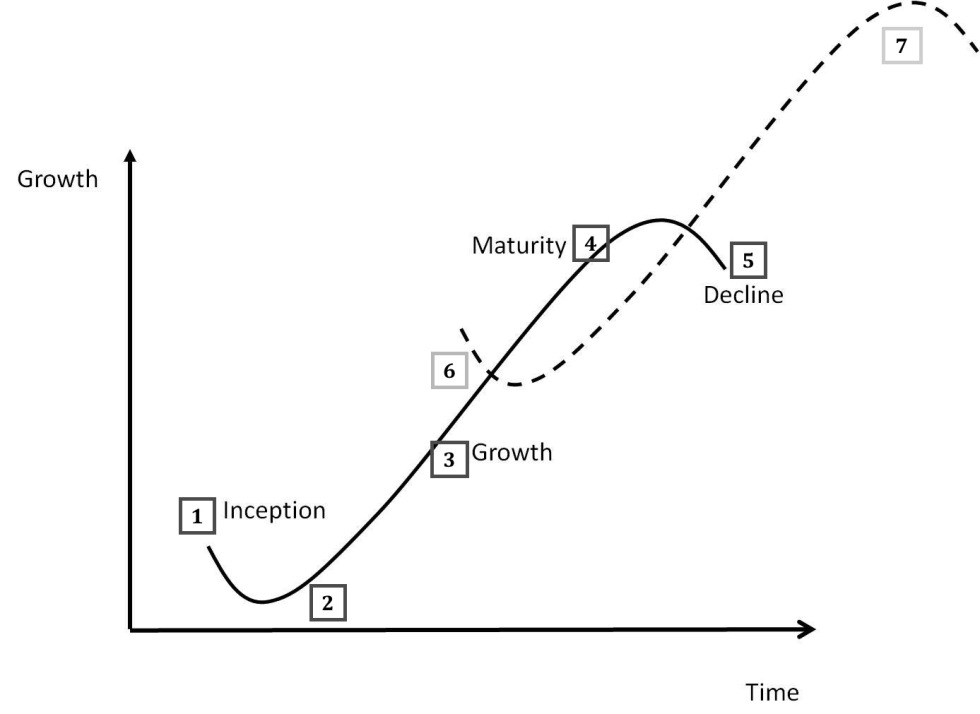Charles Handy: The Second Curve
When you know where to go, it is often too late; if you always stick to the original path, you will miss the road to the future.
Charles Handy illustrates this with the analogy of "David's Bar": on the way to "David's Bar," you should turn right up the hill when you are half a mile away. However, by the time he realized he was going the wrong way, he had already arrived at "David's Bar."

Growth curves are typically S-shaped, which we refer to as the S curve. To keep the growth rate consistently high, you must invest time and resources to develop a second S curve while there is still time.
Intel's CPUs, Netflix's video streaming, Nintendo's games, and Microsoft's cloud services are all excellent examples of businesses driven by this second curve.
How can you discover and seize the second curve? You need to input more information, discern good from bad, and identify opportunities. Then, once the opportunity arises, having a strong team to tackle the hard work is essential to determine whether you have truly found the second curve.
The reasons that made you successful in the past may not lead to future success; growth always has its limits. The second curve theory helps us reflect on why and how to embrace change for a better life.